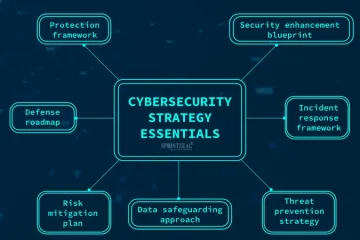Refinancing credit card debt is how borrowers repay the high-interest balances on credit cards with lower-interest solutions. Many people are burdened with credit card debt that carries over from one month to the next, creating accrued interest and debt cycling.
As the debt grows, paying the minimum monthly charges and other obligations can become difficult, leading to credit repercussions. The objective is to eliminate the highest-interest debt to see the greatest savings for a more manageable monthly budget.
While there are a few approaches to repaying these high-interest debts, each person’s circumstances are different, and they will need an individual financial solution to meet their specific needs. Some will choose a non-collateral personal loan with lower interest rates to refinance the debt.
Others will consider interest-free balance transfer credit cards offering 0 percent APR for an introductory period or an alternative like the possibility of a debt management program.
Understanding Credit Card Refinancing
The high interest accumulated on credit cards can be refinanced in a number of ways, all of which offer lower interest than being paid on the cards. Common options often used for refinancing include:
- Transitioning the balances to an interest-free credit card.
- Using a non-collateral personal loan.
- Choosing a secured method like a home equity loan.
Your choice depends on your specific circumstances, including your credit profile and score, finances, and debt.
How Does Debt Consolidation Compare to Credit Card Refinancing
Credit card balances will be reduced whether you refinance or consolidate the debt. Choosing between these options will primarily depend on your eligibility criteria.
With an unsecured personal loan, you can consolidate the debt with lower rates, even with a less-than-favorable credit score, by securing the loan with an asset of value equal to the loan’s balance or using a cosigner.
Refinancing credit card debt transfers the balances from high-interest credit cards to an interest-free balance transfer card with a large limit. A good to excellent credit score would likely be required to obtain this card.
How Does a Refinance or Consolidation Affect Credit Scores
As far as impacting credit, refinancing and consolidation can affect a borrower’s credit score, but only for a brief period. It can be beneficial if payments are made consistently and on time in the long term.
Typically, when you apply for new credit, the score will go down by a few points. Your score is also impacted by the age of the accounts. When adding a new card, the average age is affected, reducing the score by a few points.
When applying formally for a personal loan, the lender will perform a hard credit pull, which will go on your credit profile and reduce your score. When comparing lenders, making several inquiries spread over a vast period can have a significant effect.
After the balance transfer or the payoff with the loan, the credit score will start to go back up.
Credit Card Debt Refinancing
A few options for credit card refinancing are available, including using an interest-free balance transfer card or a loan to pay off the cards, leaving you with a fixed payment for a set term.
When considering the options, it’s important to weigh the pros and cons to see which is favorable with your financial circumstances and will save you the most money.
The personal loan
For a debt consolidation loan, borrowers must have a credit score of “670 or above.” The non-collateral product is available for those with lower scores; you’ll have a higher rate and less favorable terms, including fees.
You can see a more straightforward process and possibly better rates when you’re a credit union member or a valued traditional banking institution customer. It’s always suggested to borrow only what you need and ensure the payments are made consistently and on time.
It’s also wise to take a short, albeit comfortable, term to repay the debt as quickly as possible. Some pros of taking the consolidation loan:
- Pros
- Autopay allows payment to be taken directly from your account
- Non-collateral means no asset is required
- The credit score required isn’t as high as some products expect
- There’s a designated term date
- Several high-interest debts can be combined into a single monthly installment
- Cons
- A loan used to pay off high-interest debt for cards still used can ultimately increase debt
- Fees could create additional unexpected costs that cut into potential savings
- For those with low credit scores, the rates will be higher, and terms will be less than favorable, including associated fees
The balance transfer card
The interest-free balance transfer card has a 0 percent APR for an introductory period of up to roughly 18 months. It allows borrowers to transfer high-interest balances from other credit cards onto this card to pay the balance before the promotional period ends. The entire payment goes toward the balance. Please
visit kredittkortinfo.no/refinansiering-kredittkort/ to learn more about refinancing credit card debt.
A downside is there can be up to a 5 percent transfer fee for the balances transferred. This needs to be factored in to ensure taking this step is financially worthwhile. To take advantage of this refinance method, you need to have a credit score of “680 or higher.”
- Pros
- The application process is fast and simple, usually done online.
- There’s no interest for a promotional period of roughly 18 months.
- Cons
- The credit score to apply needs to be good.
- The transfer fees can be up to 5 percent.
- The interest-free period is limited.
The home equity loan
Refinancing high-interest credit card debt with a home equity loan requires that your home be worth more than the balance due; there’s equity. A home equity loan gives you a lump sum of funds for your purpose—the loan caps at 80 percent of your equity value.
The process is like a house loan, including closing costs. The interest rates are exceptionally low if you have good credit, making it an excellent alternative to other debt consolidation options.
- Pros
- Higher loan amounts are available based on the equity in the house
- Fixed installments and term
- Lower interest and low monthly installments
- Cons
- The housing market can fluctuate considerably, leaving the balance higher than the home’s value
- If you need to pay closing costs, this can negate your savings
- Your house will serve as collateral on the loan. If you miss payments or default, you can lose your home.
Is Refinancing Credit Card Debt Right for You
Refinancing credit card debt might not be the right choice for you. It could also strengthen you financially. It depends on your particular circumstances. For those with sound finances but who want to avoid constantly wasting money on too high interest, it could be a wise decision.
If you’re struggling with monthly obligations and your credit score is less than favorable, you would likely not qualify for a balance transfer card and would have higher rates with loan options.
It would be better to try to make improvements before considering refinancing or consolidating the debt. Go here for details on refinancing credit card debt. Here are the reasons refinancing can make sense.
- You have a good to excellent credit score
- Your payment behavior is always consistent and on time
Some reasons you might want to wait or make improvements before you consider refinancing or consolidating include:
- Monthly obligations are currently a struggle for you.
- You’re unsure if you can repay the balance for an interest-free balance transfer care before the introductory period ends.
- Your credit score is less-than-favorable, making it difficult to get approval for a balance transfer card and reducing the chance of getting a low-interest loan.
When refinancing and debt consolidation aren’t options you can take advantage of right away, you’ll need to make improvements. In the meantime, there are things you can do to help your situation.
Debt management
You can work with a nonprofit credit counselor to consolidate debt through a debt management program with the potential for positive long-term effects. Credit is not a factor with this plan.
The program doesn’t involve a loan or added debt. The program arranges a reduced interest rate with a reasonable monthly installment meant to pay off high-interest debt over the course of roughly five years.
When closing credit card accounts, your credit score will dip, but once the on-time payments are reflected, the score will go back up. The downside with these programs is they often come with administrative fees of roughly $50 each month.
A credit counselor
You can choose to explore options for relieving debt with a credit counselor who can help determine which will work best for you. These accredited, nonprofit professionals offer free counseling to assess your current budget, review debt refinancing and consolidation solutions, and make recommendations.
There are also for-profit agencies that charge fees for comparable services. But it’s suggested that anyone struggling with finances pursue a nonprofit counselor.
Final Thought
When researching the best option to refinance or consolidate high-interest debt, the primary factor is how the solution will affect you financially in the long term.
Prioritize understanding your current financial circumstances, what you can comfortably afford each month, and your ultimate objective once the debt is paid. Will you close those accounts or continue to use them? You don’t want to have more debt in the end or be put in a worse position.
If you have a good credit score, sound finances, and low debt, you can take advantage of most low-interest loan options and apply for an interest-free balance transfer card.
Those with less-than-favorable credit will need to make improvements but have the option of working with a nonprofit credit counselor to help get them on track.




